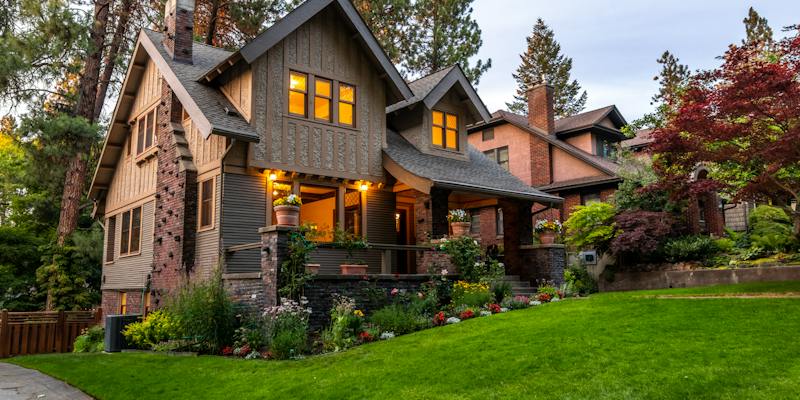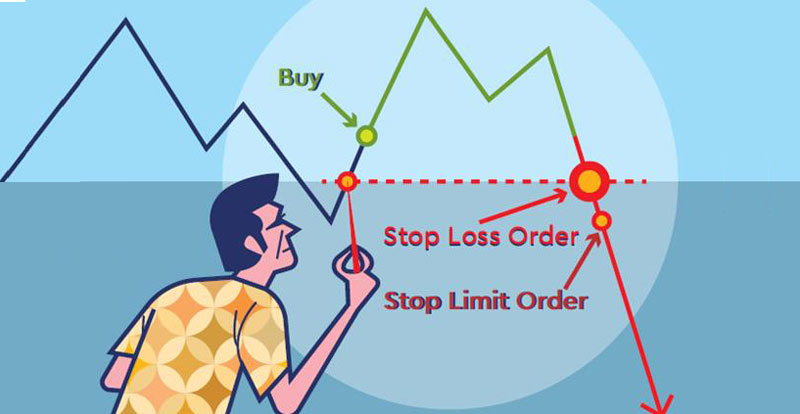Navigating the Market: A Guide to Current Second Home Mortgage Rates
Nov 09, 2023 By Susan Kelly
Advertisement
Are you dreaming of a peaceful getaway, a serene cabin by the lake, or a beachfront bungalow? Owning a second home can turn those dreams into reality. However, before you embark on your journey to purchase a second home, it's essential to understand the current second-home mortgage rates.
In this guide, we will provide you with a comprehensive overview of second-home mortgage rates, explain what affects these rates, and offer tips to secure the best mortgage deal for your dream retreat.
What Are Second Home Mortgage Rates?
Before delving into the details, let's clarify what second-home mortgage rates are. Second-home mortgage rates refer to the interest rates that lenders charge when you're financing a second home.
A second home is typically a property used for personal enjoyment, like a vacation home, and it's not your primary residence. While these rates are akin to those for primary residences, they might be a bit higher because of the increased risk associated with second homes.
Factors Affecting Second Home Mortgage Rates
Several factors can influence the current second-home mortgage rates. Understanding these factors can help you make informed decisions when shopping for a mortgage.
Credit Score
Your credit score holds substantial sway over the interest rate you'll be offered. Lenders generally provide more competitive rates to borrowers boasting high credit scores, deeming them as lower-risk applicants.
Before applying for a second home mortgage, make sure your credit score is in excellent condition. Achieve this by consistently paying bills on time, lowering outstanding debt, and thoroughly reviewing your credit report for any errors. A robust credit score can result in more advantageous loan terms.
Location of Your Second Home
The location of your second home matters. Mortgage rates can vary depending on whether your retreat is in a high-demand tourist area or a less popular region. Properties in sought-after destinations often come with higher mortgage rates.
This is because lenders may view them as riskier investments due to potential market volatility. When choosing a location for your second home, consider how it might affect your mortgage rate and overall costs.
Loan Term
The duration of your mortgage (e.g., 15, 20, or 30 years) can influence the interest rate. Typically, shorter-term mortgages tend to feature lower interest rates, but they also come with higher monthly payments.
On the other hand, longer-term mortgages often have slightly higher interest rates but lower monthly payments. When considering a second home mortgage, think about your financial situation and which loan term aligns with your budget and goals.
Loan Type
There are various types of mortgages, including fixed-rate and adjustable-rate mortgages. Fixed-rate mortgages have a stable interest rate over the loan term, offering predictability in your monthly payments.
On the other hand, adjustable-rate mortgages (ARMs) often provide a lower initial interest rate, but this rate can change periodically, which may result in higher payments if rates increase. When choosing a second home mortgage, consider your risk tolerance and how rate fluctuations could affect your budget.
Down Payment
The size of your down payment can significantly affect the mortgage rate for your second home. In general, a larger down payment tends to result in a lower interest rate. Lenders see a substantial down payment as a positive sign of financial stability and a lower risk for them.
So, if you're planning to finance a second home, consider saving up for a sizable down payment to potentially secure a more favorable mortgage rate.
Current Second Home Mortgage Rates
Now that you understand the factors affecting second-home mortgage rates, it's time to explore the current market rates.
As of the latest data, second-home mortgage rates typically fall within the range of 3.5% to 5.0%. However, it's essential to remember that these rates can fluctuate based on various factors. Your specific rate will be influenced by your credit score, the location of your second home, your chosen loan term, the type of loan you select, and the size of your down payment.
How to Secure the Best Second Home Mortgage Rate
Getting the best possible mortgage rate for your second home is essential to save money in the long run. Here are some strategies to help you secure an attractive rate:

Improve Your Credit Score
Start by reviewing your credit report and addressing any issues that may be dragging down your credit score. Pay down debts, make payments on time, and avoid opening new credit accounts.
Shop Around
Don't settle for the first mortgage offer you receive. Contact multiple lenders to compare rates, terms, and fees. This will give you a better idea of the market and help you negotiate a better deal.
Make a Significant Down Payment
If possible, aim for a substantial down payment. A down payment of 20% or more can lead to lower interest rates and may help you avoid private mortgage insurance (PMI).
Consider Different Loan Types
Evaluate the benefits and drawbacks of fixed-rate and adjustable-rate mortgages. Depending on your financial situation and risk tolerance, one type may be more suitable for your needs.
Choose the Right Location
The location of your second home can impact the mortgage rate. If you're flexible with the destination, consider areas with lower demand and more favorable rates.
Consult with a Mortgage Broker
A mortgage broker can help you navigate the complexities of second-home mortgages. They have access to a wide range of lenders and can assist in finding the best deal tailored to your circumstances.
Conclusion
Securing a second home mortgage doesn't have to be daunting. By understanding the factors that affect second home mortgage rates, shopping around, and following the tips outlined in this guide, you can make your dream of owning a second home a reality while getting a favorable mortgage rate.
Remember that mortgage rates can change, so it's essential to stay updated on the current rates and market conditions. With careful planning and the right strategy, you can begin your journey to own a tranquil retreat without breaking the bank.
Advertisement







